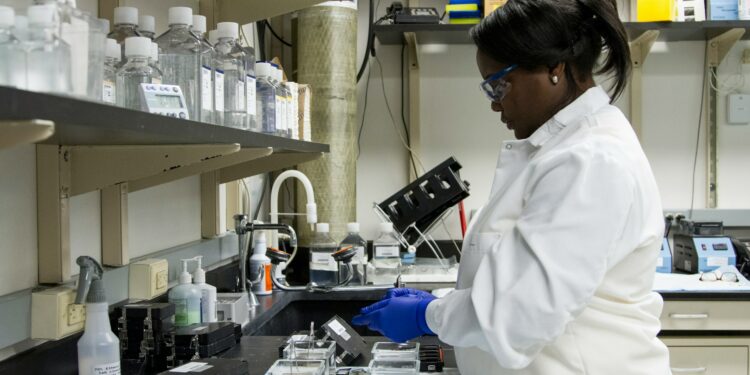This could potentially save many lives.
Researchers at Virginia Commonwealth University have developed a potential urine-based test for early detection of ovarian cancer. Published in the Journal of the American Chemical Society, their study aims to enhance current diagnostic methods by introducing a urine test alongside existing techniques like CA-125 blood tests and transvaginal ultrasound. The goal is to improve early-stage detection and subsequent treatment outcomes for ovarian cancer patients.
Dr. Deanna Gerber, a gynecological oncologist at NYU Langone’s Perlmutter Cancer Center, underscores the critical need for more effective screening tools. Ovarian cancer is often diagnosed late, at advanced stages when symptoms become apparent. Therefore, the development of a reliable urine-based test could significantly increase the chances of detecting ovarian cancer at earlier, more treatable stages, potentially leading to improved survival rates.
The research focuses on identifying specific peptides in urine samples that are associated with ovarian cancer. Traditional detection methods are often complex and expensive, prompting exploration of alternative approaches. The researchers propose using nanopore sensing, a technique that involves passing molecules through a tiny pore and measuring changes in electrical current or other properties. This method offers the potential for more efficient and accurate detection of ovarian cancer-related peptides.
Thirteen peptides, including those derived from leucine-rich a-2 glycoprotein (LRG-1), a known biomarker in ovarian cancer urine samples, were identified and analyzed. The researchers believe that understanding the signatures of these peptides could enable earlier detection of ovarian cancer compared to current methods. By harnessing this knowledge, they aim to develop a urine test that can complement existing diagnostic tools and improve overall outcomes for ovarian cancer patients.
While the research shows promise, further validation is needed before the urine-based test can be widely adopted in clinical practice. Dr. Diana Pearre, a gynecologic oncologist at The Roy and Patricia Disney Family Cancer Center, emphasizes the importance of conducting additional trials to assess the test’s sensitivity and effectiveness in detecting ovarian cancer. Despite these challenges, the development of a urine-based test represents a significant step forward in ovarian cancer diagnostics and offers hope for improved outcomes through earlier detection and intervention.

































Discussion about this post